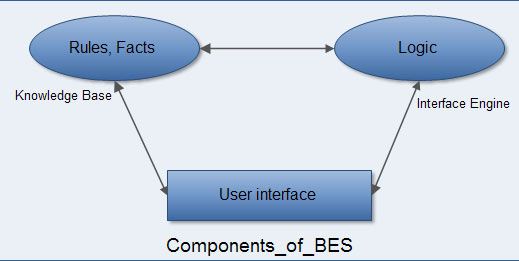A Business Expert System (BES) is a knowledge based information system, which is based on artificial intelligence. A Knowledge Based information system adds a knowledge base that uses its knowledge about a specific, complex application area to act as an expert.
Also, BES provides decision support to managers in the form of advice from an expert in a specific problem area such as medical, engineering and business. BES is interactive in nature and it is able to answer the questions asked by a user. For answering the questions, an expert system searches its knowledge base for facts and rules and explains its reasoning process and results in the expert advice to the end user. The main components of BES are:
1) Knowledge base
2) Inference engine
3) User interface

Knowledge base contains the facts about the specific expert area and heuristics that describe the reasoning procedures of an expert on the subject.
The inference engine contains the logic of reaching an inference from the stored data and from the knowledge base.
Expert systems may be developed by using either the programming language like LISP, PROLOG or C or by using the expert system packages. Using the expert system packages, one can design an expert system that combines the features of DSS and expert systems. This integration makes the application development process easier and faster for the end users.
 Dinesh Thakur holds an B.C.A, MCDBA, MCSD certifications. Dinesh authors the hugely popular
Dinesh Thakur holds an B.C.A, MCDBA, MCSD certifications. Dinesh authors the hugely popular